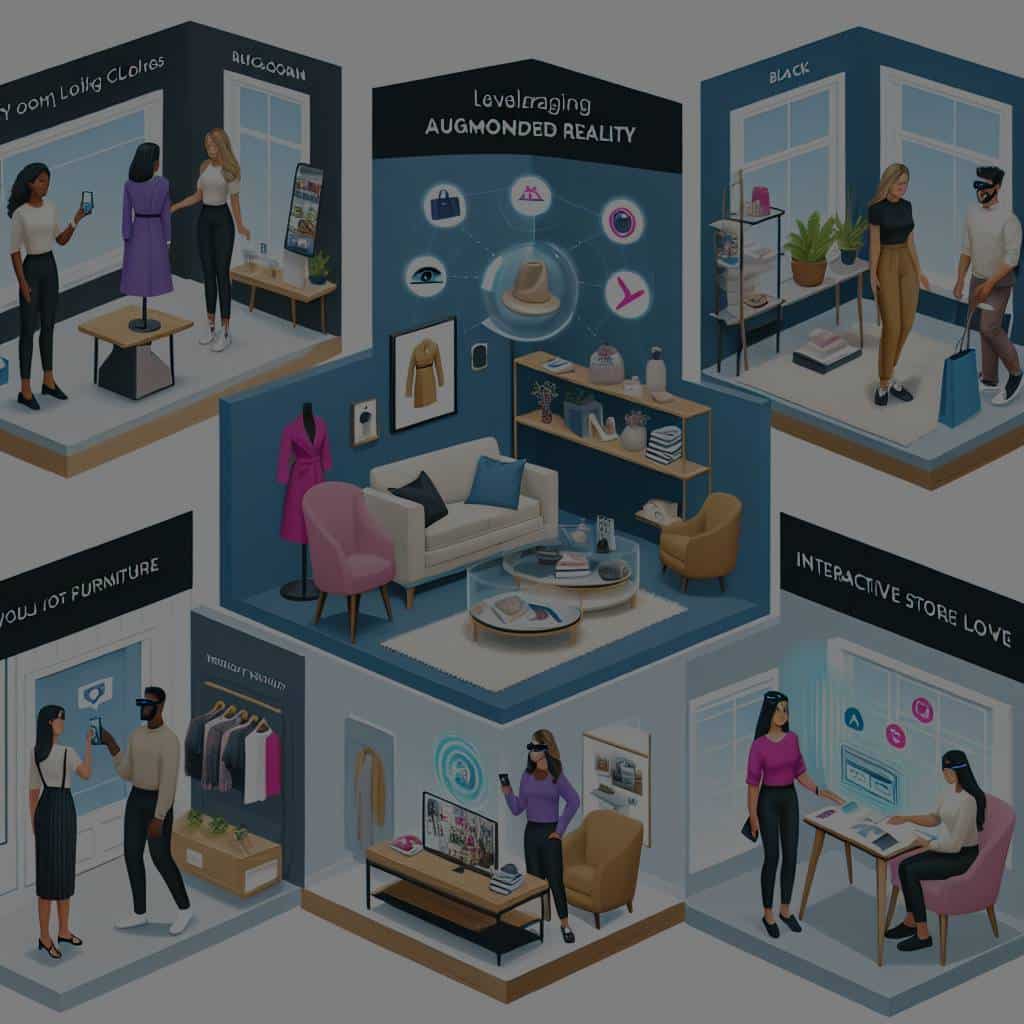The core purpose of marketing is to bridge the gap between a product and its potential customers; to seamlessly weave a narrative that facilitates the journey of the goods from the retail shelves to the consumers’ homes. For a while, this journey has been considerably static, with limited room for significant changes or improvements. However, the advent of technology and, specifically, the rise of augmented reality (AR) has been a game-changer for the retail industry.
AR is an interactive experience of a real-world environment where objects in the real world are enhanced by computer-generated perceptual information. It has led to the birth of a new era in marketing, opening doors to innovative, immersive, and interactive shopping experiences, especially in the UK retail sector.
Also to see : What Are the Latest Innovations in Eco-Friendly Transportation for UK City Planners?
Augmented Reality and the Retail Landscape
The retail landscape in the UK is witnessing a paradigm shift due to the integration of augmented reality into their business models. Retailers are leveraging AR to enhance the customer experience and ultimately drive sales. With AR, they can breathe life into an otherwise static product, transforming it into an interactive experience for the user.
AR provides a vibrant, virtual dimension to the customer’s shopping journey. Customers can now visualise products in a real-world context before finalising their purchase. A piece of furniture, for instance, can be virtually placed in the user’s home to check if it fits well with their existing décor. Clothing retailers are using AR to provide virtual fitting room experiences, allowing customers to see how clothes or accessories look on them without having to physically try them on.
Have you seen this : How Can UK Educational Institutions Use AI to Personalize Learning?
Boosting Sales and Customer Engagement
AR is a powerful tool that retailers can utilise to boost both sales and customer engagement. By creating more immersive experiences, they can encourage customers to spend more time in their store – be it a physical or online entity – which, in turn, can potentially lead to increased sales.
AR technology also allows businesses to capitalise on the ‘try-before-you-buy’ concept, helping customers make informed purchase decisions. This, in turn, can lead to higher customer satisfaction, decrease return rates, and increase repeat purchases.
Additionally, the interactive nature of AR can help retailers foster a sense of connection with their customers, making them feel valued and engaged. This level of personalisation can significantly enhance customer loyalty, leading to a healthier bottom line for the business.
Transforming Marketing Strategies with Augmented Reality
AR is not only transforming the way customers shop but also the way retailers market their products. Traditional marketing strategies often rely on telling the customer about the product. With AR, retailers can now show customers what the product can do, providing a much more compelling and persuasive narrative.
For instance, retailers can use AR to create interactive advertisements that allow customers to virtually interact with the product. This added layer of interactivity can significantly boost the effectiveness of the ad, driving higher engagement and recall.
Moreover, AR opens up endless possibilities for creative storytelling. Retailers can weave their products into engaging narratives, making the customers a part of the story. This method not only entertains the customer but also helps create a strong emotional connection with the product.
Impact on UK Retail Businesses
The UK retail sector, recognised globally for its innovative approaches to retailing, has embraced AR with open arms. Retailers who have adopted this technology have reported significant gains in not only customer satisfaction and engagement but also in business performance.
AR has enabled UK retailers to offer enhanced shopping experiences, attract new customers, and retain existing ones. It has fostered a new level of interaction between customers and products, creating memorable experiences that customers are likely to revisit and share with others.
Moreover, AR’s ability to seamlessly merge the physical and digital world has made it an invaluable tool for UK retailers, especially in the wake of the COVID-19 pandemic. As the line between brick-and-mortar stores and online shopping continues to blur, AR stands as a beacon of innovation, guiding retailers towards a more resilient and customer-centric future.
As we move further into the 21st century, it’s clear that augmented reality will continue to play a significant role in the retail sector. Through immersive experiences and interactive storytelling, AR is enhancing the way we shop, transforming marketing strategies, and driving business growth. It’s not just about selling products anymore; it’s about crafting memorable experiences that keep customers coming back for more.
The Future of Augmented Reality in UK Retail
In the UK, augmented reality has already made significant strides in reshaping the traditional retail landscape. It’s clear that AR is not merely a passing trend but a compelling tool that will continue to propel the industry into a more dynamic and interactive future.
As technology continues to evolve, so will the ways in which AR is applied in retail. In the future, customers can expect even more immersive shopping experiences. Imagine walking into a store and being greeted by AR-powered sales assistants that can provide real-time product information, personalised recommendations, and even facilitate checkouts. Or, using AR to access detailed product reviews and ratings, simply by pointing your smartphone at a product in a physical store.
AR can also be used to gamify the shopping experience, making it more fun and engaging for customers. Retailers might offer AR-powered treasure hunts or quizzes, rewarding customers with discounts or loyalty points for participation.
In terms of online shopping, AR can revolutionise the way we shop from the comfort of our homes. Virtual reality (VR) combined with AR could offer virtual shopping trips, where customers can virtually walk through the store, pick up products, and even try them on.
While AR is already helping UK retail businesses boost sales, customer engagement and satisfaction, the potential for growth is immense. AR technology is evolving at an unprecedented pace, and as software development continues to advance, the possibilities for augmented reality in UK retail seem limitless.
Conclusion: The Power of Augmented Reality for UK Retail
With the ever-changing forces of technology and consumer behaviour, the retail industry is always on the lookout for innovative ways to stay relevant and competitive. Augmented reality is proving to be a powerful ally in this endeavour, enabling UK retailers to transform the shopping experience, drive customer engagement, and ultimately, enhance their bottom line.
The unique value proposition that AR brings – the ability to merge the physical and digital worlds – is a game-changer for the industry. It allows retailers to break the confines of traditional retail and create engaging, interactive and personalised experiences that consumers truly value.
By enhancing the way customers interact with products and facilitating a more immersive and engaging shopping experience, AR is reinventing the very concept of retail. It’s a tool that brings products to life, fosters emotional connections with customers, and most importantly, significantly ramps up retail sales.
And while AR is already making waves in the UK retail sector, the best is yet to come. As technology continues to evolve, the use of augmented reality in UK retail will only get more sophisticated, creative, and immersive. It is clear that AR is not just the future of retail – it’s the present, and retailers who leverage this powerful technology will be the ones who thrive in this exciting new era of retail.











